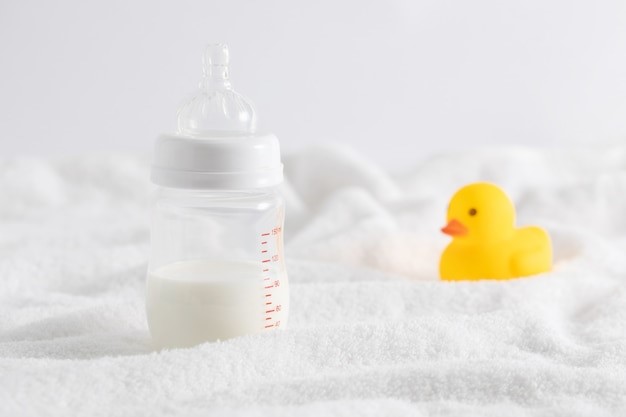Diet Matters: How a Mother’s Diet Can Impact Colic in Breastfed Babies

In the early months of parenthood, colic can be a daunting challenge for both babies and their parents. Colic, characterized by prolonged and intense crying episodes in otherwise healthy infants, can be distressing and exhausting. While the exact cause of colic remains uncertain, research suggests that a mother’s diet may play a significant role, particularly in breastfed babies. Understanding the connection between a mother’s diet and colic can empower parents to make informed choices that may alleviate symptoms and improve their baby’s well-being.
The Link Between Maternal Diet and Colic
Studies have shown that certain foods consumed by breastfeeding mothers can contribute to colic symptoms in their babies. Common culprits include dairy products, caffeine, spicy foods, and gas-inducing vegetables like broccoli and cabbage. When breastfeeding mothers ingest these foods, their components can pass into breast milk and potentially affect the infant’s digestive system, leading to discomfort and increased crying episodes.
One study published in the journal Pediatrics found that infants whose mothers consumed cow’s milk were more likely to experience colic symptoms compared to those whose mothers avoided dairy. Similarly, another study in Nutrition Journal highlighted a correlation between maternal caffeine intake and infantile colic, suggesting that reducing caffeine consumption could help alleviate symptoms.
The Role of Nutrition in Breastfeeding
Maintaining a balanced and nutritious diet is crucial for breastfeeding mothers, not only for their own health but also for the well-being of their babies. Consuming a variety of fruits, vegetables, lean proteins, and whole grains can provide essential nutrients such as vitamins, minerals, and antioxidants that support both maternal and infant health.
Omega-3 fatty acids, found in fish like salmon and walnuts, are particularly beneficial for breastfeeding mothers as they contribute to the development of the baby’s nervous system. Including sources of probiotics, such as yogurt and fermented foods, may also promote gut health in both mother and baby, potentially reducing the risk of colic.
Identifying Trigger Foods and Making Dietary Adjustments
Every baby is unique, and what triggers colic symptoms in one may not affect another. To identify potential trigger foods, parents can keep a food diary, noting what they eat and any corresponding changes in their baby’s behavior. If a pattern emerges linking certain foods to colic episodes, gradually eliminating those foods from the mother’s diet may help alleviate symptoms.
However, it’s essential for breastfeeding mothers to maintain a well-balanced diet even as they eliminate potential trigger foods. Consulting with a healthcare provider or a registered dietitian can ensure that both mother and baby receive adequate nutrition while addressing colic symptoms.
The Role of Anti Colic Bottles in Alleviating Discomfort
In addition to dietary adjustments, using the best anti colic bottles can also help reduce symptoms of colic in breastfed babies. These bottles are designed with special venting systems that minimize the ingestion of air during feeding, which can help prevent gas and discomfort. By reducing air intake, anti colic bottles can alleviate symptoms such as fussiness, gassiness, and spit-up, providing relief for colicky babies.
Research published in the Journal of Pediatrics has shown that infants who use anti colic bottles experience fewer episodes of colic compared to those using conventional bottles. The innovative design of these bottles helps maintain a consistent flow of milk and reduces the intake of air bubbles, leading to a more comfortable feeding experience for babies.
When choosing the best anti colic bottles for their babies, parents should look for features such as venting systems, ergonomic designs, and compatibility with breastfeeding. Brands like Dr. Brown’s, Philips Avent, and Tommee Tippee offer a range of anti colic bottles designed to meet the needs of colicky infants.
Conclusion
While colic can be a challenging and distressing experience for both babies and parents, understanding the potential impact of a mother’s diet can provide valuable insights into managing and alleviating symptoms. By making dietary adjustments, such as avoiding trigger foods and consuming a balanced diet rich in nutrients, breastfeeding mothers can support their baby’s digestive health and reduce the risk of colic.
In addition to dietary changes, using the best anti colic bottles can further enhance comfort during feeding and minimize symptoms of colic in breastfed babies. By combining these approaches, parents can empower themselves to provide the best possible care for their colicky infants, promoting their health and well-being during this critical stage of development.

Leave a Reply